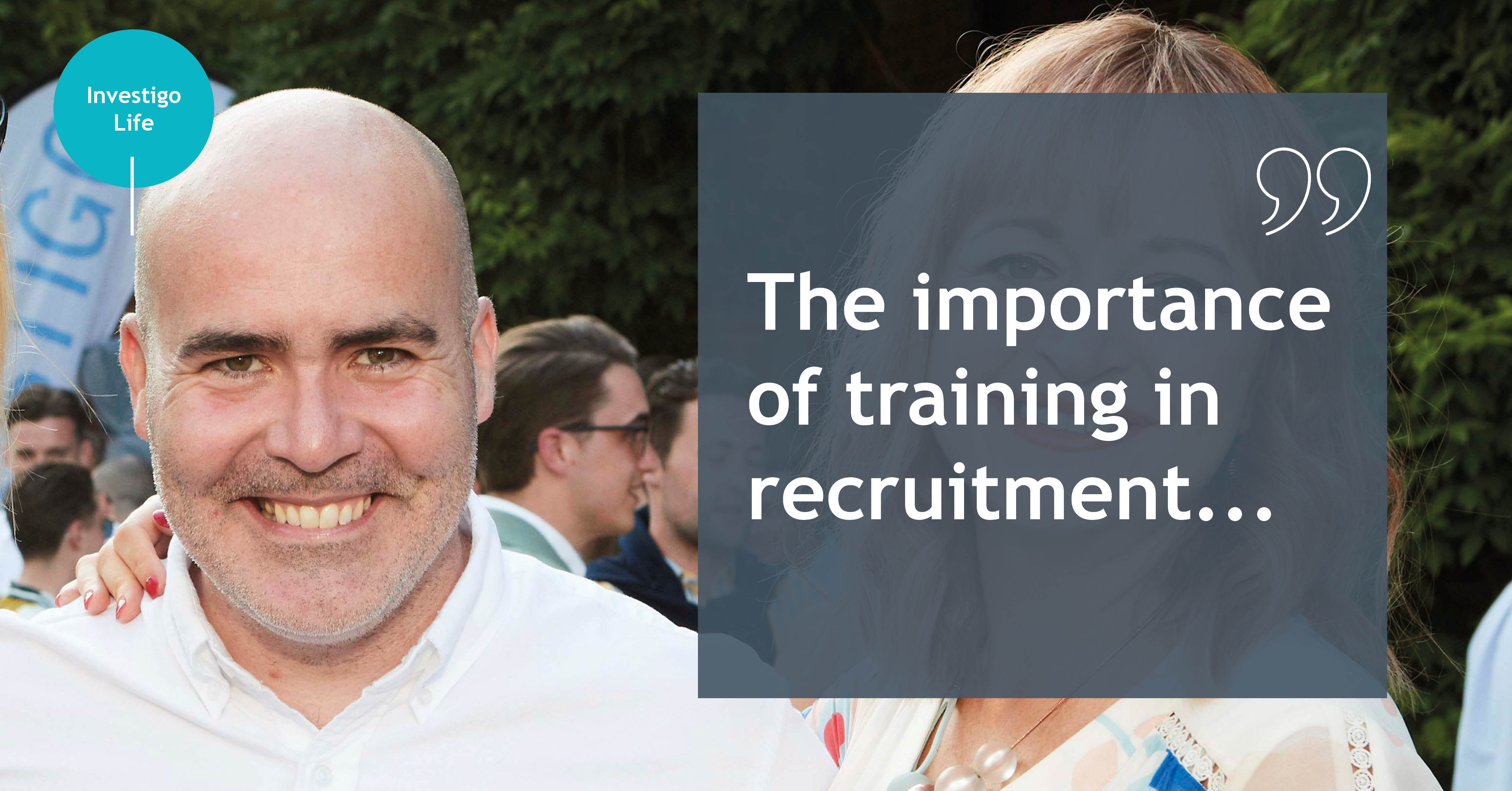
What makes a good recruiter?
Insight from Investigo’s Learning and Development team.
What makes a good recruiter?
Insight from Investigo’s Learning and Development team.
Who better to answer that most pressing of questions – “What makes a good recruiter?” – than the person who trains them? We spoke to Graham Peck, who has 15 years’ experience in the industry, most recently in training and development at Investigo.
First things first, let’s get to know Graham.
Why did you pursue a career in Learning and Development?
I’d worked in recruitment for 10 years and trained hundreds of consultants. I loved it and I was good at it, so decided to make training my career! That was almost five years ago now.
The stars aligned when I met with Investigo in 2015. The Board had some big ambitions and knew investing in training was essential for growing the business. We are now a 200+ strong company, so their approach worked – and continues to do so.
On a personal note, I have two young children and I wanted a role that offered the flexibility to be with them and watch them grow up, so I now get the best of both worlds.
What is Investigo’s approach to L&D?
We offer a unique training solution where we work one-to-one with consultants. Every consultant and sector is different, so they require a tailored approach, which in turn yields tangible results. And with 80% of our hires being experienced consultants, a one-size-fits-all approach simply doesn’t work, nor does sitting in a classroom for nine hours a day.
What makes a good training business partner?
You should probably ask the people I work with! Being a good coach is key and experience counts. Having spent 10 years’ growing desks and growing teams, I have a lot of experience to draw upon. Keeping up to date also counts, so I’m keen to learn from the consultants we hire to keep my content current. What worked “X” years ago doesn’t necessarily work now.
As a coach, my approach is to empower consultants to reach their own conclusions and formulate their own strategies; that way they take ownership over their success. Often, I’ll meet with a consultant and within two minutes know what they need to do, but they need to work things out for themselves – I’m there to give them the techniques, insight and confidence to do so.
What makes a good recruiter?
I was once told, to be a good recruiter you need “a good head and a good heart”, which I have only recently realised my previous MD had stolen from Nelson Mandela!
You also need an appetite for learning, to be conscientious and have an entrepreneurial streak. Recruitment is one of the only jobs where you’re responsible for both generating sales and delivering on them.
What are your top recruitment tips?
For new consultants, my advice is simple: ask open questions and let the person answer – effective information gathering is key.
For the experienced recruiter, good questioning remains essential, but in a buoyant market it is all about job control. This is my most frequently given advice. Understand the role you are recruiting, engage the client, motivate the candidate and control the process to deliver the best outcome. Oh, and be honest with your client about what you can and can’t deliver; they will value your honesty above everything else.
What do new recruiters struggle with when they join the profession?
Nothing can prepare a new recruiter for the level of hard work required. It’s a steep learning curve – a baptism of fire, if you will – especially for fresh graduates who have been successful at college or university. Their ability to learn, develop resilience and have confidence in their ability is the key to their success.
What do you love about recruitment?
The camaraderie and the thrill of making placements. Now, I’m fortunate to witness and share in the wins of the consultants I train; it’s such an incredible sense of achievement.
What frustrates you about the industry?
My number one frustration is the level of training available. I meet many potential Investigo hires and the skill levels vary hugely, often due to the sheer lack of training and support in previous roles. It frustrates me that good consultants with the right attitude are put off pursuing the career because their only experience of recruitment is a “boiler room” environment with little upskilling.
How has the industry changed since you started?
Luckily, I joined recruitment just after the fax machine days(!), but I have been doing it long enough to know that recruitment is supposed to be dead by now! Linkedin and onsite teams were set to replace agencies, but the industry continues to grow. Indeed, at Investigo we are breaking records and hiring across almost every sector.
There has also been a culture shift among agencies that has brought about a change in working practices to attract and retain top talent. An “always on” approach and constant phone monitoring just doesn’t work. I’m a firm believer in training people so they are armed with the skills to do the job and then providing a framework to achieve and measure their success.
What does the future hold for recruitment?
I think recruitment will become more specialised and focused, with clients looking to agencies to find those candidates they genuinely can’t find themselves.
Technology will continue to change the face of recruitment and the sectors in which we recruit. But what I anticipate won’t change is that the recruitment agencies with the strongest brand, the smartest consultants and the most dynamic approaches will invariably succeed.


